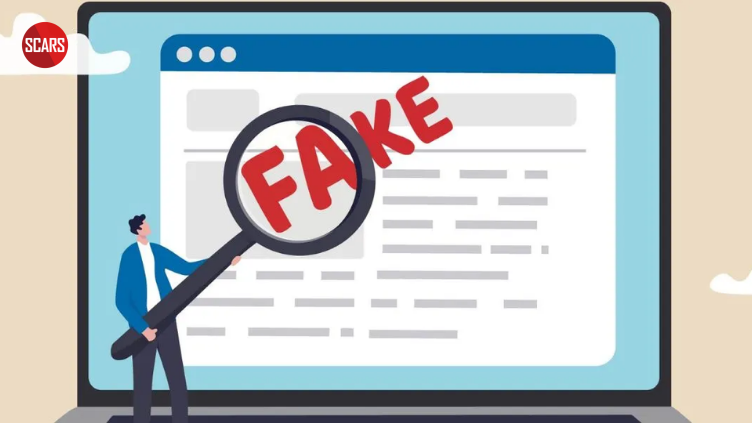Reenabling Scam Victim Curiosity After A Relationship Scam
Helping every Scam Victim to Rediscover their Curiosity and Start Learning Again!
Primary Category: Scam Victim Recovery Psychology
Author:
• Tim McGuinness, Ph.D., DFin, MCPO, MAnth – Anthropologist, Scientist, Polymath, Director of the Society of Citizens Against Relationship Scams Inc.
About This Article
Recovering curiosity after experiencing a relationship scam involves overcoming cognitive impairment and trauma. Scams can leave victims feeling betrayed and distrustful, stifling their curiosity.
Understanding the brain’s response to trauma, including the impact on the amygdala and hippocampus, helps explain the challenges in re-engaging with new experiences.
To rebuild curiosity, it’s crucial to address emotional and cognitive blocks through self-care, support networks, and gradual exposure to new activities.
Managing cognitive overload and using structured learning approaches can further assist in this recovery, fostering a renewed sense of wonder and exploration.

Rediscovering Curiosity After a Relationship Scam for every Scam Victim: A Guide to Overcoming Cognitive Impairment and Learning Anew
While curiosity may have helped to lead scam victims into scams its importance after the scam cannot be overestimated! Curiosity is essential for every scam victim seeking to recover.
Experiencing a relationship scam can leave victims feeling betrayed, emotionally drained, and cognitively impaired. The trauma can suppress curiosity, create fear of the unknown, and impair the ability to engage in new learning experiences. However, it is possible to regain curiosity and begin a journey of recovery and intellectual growth. Here’s a comprehensive guide on how to re-enable your curiosity after being traumatized by a relationship scam.
Understanding the Impact of Trauma on Curiosity
Trauma, particularly from relationship scams, can have significant cognitive and emotional effects. Victims may experience anxiety, depression, and a general lack of trust, all of which can dampen their natural curiosity. This can lead to a cognitive impairment known as “learned helplessness,” where the individual feels powerless to change their situation and hesitant to explore new experiences or knowledge.
Trauma, such as that experienced from a relationship scam, can significantly alter an individual’s mental and emotional landscape. One of the less obvious but profound effects is the suppression of curiosity. To fully grasp the impact of trauma on curiosity, it is essential to explore the neurological underpinnings of this phenomenon.
The Neurological Basis of Curiosity
Curiosity is a complex cognitive function that involves several brain regions, primarily the prefrontal cortex (PFC), the hippocampus, and the amygdala. The PFC is associated with decision-making, planning, and impulse control, playing a key role in the initiation of curious behavior. The hippocampus is crucial for memory formation and retrieval, facilitating the learning aspect of curiosity. The amygdala is involved in processing emotions, particularly fear and pleasure, influencing the emotional aspects of curiosity.
Trauma’s Impact on the Brain
Amygdala Hyperactivation: Trauma often leads to an overactive amygdala, the brain’s emotional center. In the context of a relationship scam, the betrayal and emotional manipulation involved can heighten the amygdala’s response. This hyperactivation is associated with increased fear, anxiety, and heightened emotional responses. Consequently, individuals may become more risk-averse and less inclined to explore new ideas or experiences, as their brain prioritizes safety over exploration.
Prefrontal Cortex Dysfunction: The prefrontal cortex, which is crucial for executive functions such as decision-making, attention, and cognitive control, can become dysregulated due to trauma. The stress response triggered by traumatic events can impair the PFC’s ability to regulate emotions and impulses. This dysfunction can lead to difficulties in initiating curiosity-driven activities, as the individual may struggle with decision-making and planning.
Hippocampal Atrophy: Chronic stress and trauma can lead to changes in the hippocampus, including a reduction in its volume, known as hippocampal atrophy. This region is essential for memory and learning, and its impairment can hinder the ability to form new memories and recall existing ones. For victims of relationship scams, this can manifest as difficulties in engaging with new information or experiences, as the process of learning itself becomes challenging.
Altered Neurotransmitter Levels: Trauma can also disrupt the balance of neurotransmitters in the brain, particularly serotonin, dopamine, and cortisol. Serotonin, often associated with mood regulation, can become dysregulated, leading to symptoms of depression and anxiety, which can dampen curiosity. Dopamine, a neurotransmitter linked to pleasure and reward, plays a significant role in motivating exploratory behavior. Trauma can reduce dopamine levels, diminishing the sense of reward associated with new discoveries. Elevated cortisol levels, a common response to stress, can further impair cognitive functions and inhibit curiosity.
Neuroplasticity and Learned Helplessness: Trauma can also impact neuroplasticity, the brain’s ability to adapt and change in response to new experiences. In cases of severe trauma, individuals may experience “learned helplessness,” a state where they feel unable to change their situation or influence outcomes. This condition is characterized by a lack of motivation to engage with the world, resulting in a diminished capacity for curiosity.
Implications for Recovery
Understanding the neurological impact of trauma on curiosity highlights the need for a multifaceted approach to recovery. Cognitive-behavioral therapy (CBT), mindfulness practices, and other therapeutic interventions can help retrain the brain and restore balance to affected neurotransmitter systems. Encouraging small, positive experiences can help re-engage the brain’s reward system, gradually rebuilding curiosity and the capacity for new learning.
By addressing these neurological changes, individuals can begin to heal and regain their natural curiosity, allowing them to explore new experiences and information with a renewed sense of wonder and engagement.
Steps to Re-enable Curiosity
Acknowledge Your Experience
The first step in overcoming the impact of trauma is to acknowledge the experience and its effects. Understand that feeling a lack of curiosity or cognitive impairment is a normal response to a traumatic event. Recognizing these feelings as part of the healing process is crucial in moving forward.
Create a Safe Environment
Establishing a sense of safety is fundamental in rekindling curiosity. This involves both physical and emotional aspects. Surround yourself with supportive friends and family, and create a space where you feel secure. Reducing exposure to stressful or triggering environments can help in focusing on healing and growth.
Start Small
Rebuilding curiosity doesn’t have to involve grand gestures or complex subjects. Begin with small, manageable tasks that pique your interest. This could be reading a short article on a topic you enjoy, watching a documentary, or trying out a new hobby. The key is to engage in activities that feel safe and manageable, gradually expanding your comfort zone.
Avoid Cognitive Overload
Avoiding cognitive overload is crucial for effective learning. To prevent overwhelm, it’s important to break information into manageable chunks and focus on one task at a time. Prioritize the most relevant and important information, and take regular breaks to process what you’ve learned. Utilizing tools like diagrams, summaries, and mnemonic devices can also help in organizing and retaining information without overwhelming your cognitive resources.
Be Structured
When beginning any new learning endeavor, having a structured approach is essential. Structure provides a clear roadmap, helping to organize thoughts and prioritize tasks. It reduces confusion and anxiety by setting clear goals and expectations. A well-defined structure also allows for gradual progression, ensuring that foundational concepts are understood before moving on to more complex topics. This methodical approach fosters a sense of achievement and builds confidence, making the learning process more efficient and enjoyable.
The SCARS Institute Scam Survivor’s School provides an easy structured approach to learn to recover. You can enroll for free now at www.SCARSeducation.org
Mindfulness and Meditation
Practices such as mindfulness and meditation can help calm the mind and improve focus. These techniques encourage present-moment awareness, helping you to observe thoughts and feelings without judgment. This can be particularly beneficial in overcoming the fear of new experiences and allowing curiosity to flourish.
Set Realistic Goals
Setting small, achievable goals can help in regaining a sense of control and accomplishment. Whether it’s reading a book, attending a workshop, or exploring a new hobby, achieving these goals can boost confidence and encourage further exploration.
Engage in Lifelong Learning
Reconnecting with the joy of learning is a powerful way to rekindle curiosity. Consider enrolling in courses or workshops, either in-person or online, on topics that interest you. Platforms like Coursera, Udemy, or local community centers often offer a wide range of subjects. Engaging in structured learning can provide a sense of purpose and progress.
Connect with Others
Sharing experiences and learning with others can be incredibly rewarding. Joining clubs, forums, or social groups related to your interests can provide a supportive community and enhance your learning experience. This social engagement can also help in rebuilding trust and social skills that may have been affected by the trauma.
Practice Self-Compassion
Be kind to yourself throughout this journey. Understand that recovery is a process, and it’s okay to take things at your own pace. Celebrate small victories and be patient with setbacks. Self-compassion is key to maintaining motivation and resilience.
Seek Professional Support
Engaging with a mental health professional can provide the necessary support to process the trauma. Therapists and counselors can offer coping strategies and therapeutic techniques, such as cognitive-behavioral therapy (CBT), which can help in managing anxiety and rebuilding confidence in one’s cognitive abilities.
Overcoming Cognitive Impairment
Cognitive impairment from trauma can manifest as difficulty concentrating, memory problems, or a general feeling of mental fog. To combat this:
Healthy Lifestyle: Ensure a balanced diet, regular exercise, and adequate sleep. These foundational elements significantly impact cognitive function.
Mental Exercises: Engage in puzzles, games, or apps designed to improve cognitive skills. Activities like Sudoku, crossword puzzles, or memory games can help sharpen your mind.
Limit Digital Distractions: Excessive use of digital devices can impair cognitive function. Set boundaries on screen time and engage in activities that promote focus and mindfulness.
Embracing a New Beginning
Rediscovering curiosity and overcoming cognitive impairment after a relationship scam is a journey of healing and growth. It requires patience, persistence, and a willingness to explore new horizons. By acknowledging the trauma, seeking support, and taking gradual steps towards re-engaging with the world, you can reignite your curiosity and embrace new learning opportunities.
Remember, the path to recovery is personal and unique to each individual. There is no right or wrong way to rediscover your curiosity, and it’s okay to seek help along the way. With time, support, and self-compassion, you can overcome the shadows of trauma and enjoy a vibrant, curious life once again.
Please Rate This Article
Please Leave Us Your Comment
Also, tell us of any topics we might have missed.
Leave a Reply
Thank you for your comment. You may receive an email to follow up. We never share your data with marketers.
-/ 30 /-
What do you think about this?
Please share your thoughts in a comment above!
-/ 30 /-
What do you think about this?
Please share your thoughts in a comment above!
SCARS LINKS: AgainstScams.org RomanceScamsNOW.com ContraEstafas.org ScammerPhotos.com Anyscam.com ScamsNOW.com
reporting.AgainstScams.org support.AgainstScams.org membership.AgainstScams.org donate.AgainstScams.org shop.AgainstScams.org
youtube.AgainstScams.org linkedin.AgainstScams.org facebook.AgainstScams.org
ARTICLE RATING
TABLE OF CONTENTS
CATEGORIES
MOST POPULAR COMMENTED ARTICLES
POPULAR ARTICLES
U.S. & Canada Suicide Lifeline 988
![NavyLogo@4x-81[1]](https://scamsnow.com/wp-content/uploads/2025/04/NavyLogo@4x-811.png)
ARTICLE META
WHAT PEOPLE ARE TALKING ABOUT LATEST SITE COMMENTS
See Comments for this Article at the Bottom of the Page
on Arts and Crafts Can Significantly Aid in Recovery for Scam Victims – 2025: “I did not realize that things I like doing very much—knitting or sudoku—were so helpful in my recovery process. The…” Jul 14, 11:28
on Projection And Scam Victims: “The moment I realized I had a financial loss due to a scam I realized that I felt shame, guilt,…” Jul 13, 19:12
on Japanese Legend of Tears – When There Are No Words – 2025: “After discovering the fraud, the pain was enormous. I shed oceans of tears, but I always tried to do it…” Jul 13, 10:50
on The SCARS Institute Scam Victim Recovery Timeline – 2025: “Wow. I umm experienced some of the later curves. I have been bouncing back and forth between asking myself why…” Jul 11, 00:01
on Transference And Emotional Danger After The Scam – 2024: “Thank you for the kind but firm reminder that the person in the stolen profile photo has their own life.…” Jul 9, 01:26
on ‘Mental Defeat’ – The Unique Condition Of Giving Up – 2024: “Thank you for another great article. I can see from this article that mental defeat would be debilitating to a…” Jul 9, 00:49
on Trust: Romance Scams Betrayal And Scam Victims – 2024: “This provided valuable insight that I can identify with” Jul 8, 16:44
on A Scam Victim in Extreme Distress – Stopping the Pain – 2024: “Your trust issues are very understandable. We are very sorry this happened to you. We suggest that you contact an…” Jul 8, 14:42
on A Scam Victim in Extreme Distress – Stopping the Pain – 2024: “My online counselors advised me to check myself in. I went to the hospital because I was suicidal. After I…” Jul 8, 13:44
on Scam Victim Catastrophizing Making Recovery Difficult 2024: “Excellent article on catastrophizing. I can understand how this could take a person down a rabbit warren of never ending…” Jul 8, 12:12
on The Self-Pity Trap & How To Overcome It – 2023 – [UPDATED 2025]: “I am not in the habit of feeling sorry for myself. After the deception, although it was not easy at…” Jul 8, 11:49
on Pride – A Dual Edged Sword For Scam Victims – 2023 [UPDATD 2024]: “Looking back over my life I have seen how pride has impacted me both positively and negatively. However the negative…” Jul 8, 09:08
on The Self-Pity Trap & How To Overcome It – 2023 – [UPDATED 2025]: “I felt self-pity while the enormity of my financial loss washed over me like a tsunami. The self-pity lasted only…” Jul 7, 18:55
on The Uniqueness Of Scam Victims Or Fraud Victims – 2024: “unfortunately all true. It is highly stressful dealing with the aftermath. I am being sued for the money I borrowed…” Jul 6, 12:50
on Scam Victims & Mental Health Blaming – 2023 [UPDATED 2025]: “For most of my life words have defeated me, made me feel insignificant, unwanted, unneeded. For this reason it is…” Jul 5, 13:36
on Substance Abuse Susceptibility And Scam Victims – 2024: “It is understandable how some would feel that alcohol or substance abuse would be helpful in handling their feelings after…” Jul 1, 20:36
on Scam Victims Use Work To Avoid Healing: “The last 6 years have been the most difficult of my life. The pandemic, having both parents in the hospital…” Jun 29, 18:38
on Entitlement Mentality And How Scam Victims Often Lose Their Path To Recovery – 2024: “Thank you for this discussion of entitlement. I can see from the descriptions listed that I have not felt entitlement.…” Jun 29, 18:22
on Samurai Wisdom and Rituals for Clearing the Mind After Scam Trauma – 2025 – [VIDEOS]: “A great guide on how to move forward in our recovery process with a calm mind, cleansed on an ongoing…” Jun 28, 07:34
Important Information for New Scam Victims
Please visit www.ScamVictimsSupport.org – a SCARS Website for New Scam Victims & Sextortion Victims
SCARS Institute now offers a free recovery program at www.SCARSeducation.org
Please visit www.ScamPsychology.org – to more fully understand the psychological concepts involved in scams and scam victim recovery
If you are looking for local trauma counselors, please visit counseling.AgainstScams.org
If you need to speak with someone now, you can dial 988 or find phone numbers for crisis hotlines all around the world here: www.opencounseling.com/suicide-hotlines
Statement About Victim Blaming
Some of our articles discuss various aspects of victims. This is both about better understanding victims (the science of victimology) and their behaviors and psychology. This helps us to educate victims/survivors about why these crimes happened and not to blame themselves, better develop recovery programs, and help victims avoid scams in the future. At times, this may sound like blaming the victim, but it does not blame scam victims; we are simply explaining the hows and whys of the experience victims have.
These articles, about the Psychology of Scams or Victim Psychology – meaning that all humans have psychological or cognitive characteristics in common that can either be exploited or work against us – help us all to understand the unique challenges victims face before, during, and after scams, fraud, or cybercrimes. These sometimes talk about some of the vulnerabilities the scammers exploit. Victims rarely have control of them or are even aware of them, until something like a scam happens, and then they can learn how their mind works and how to overcome these mechanisms.
Articles like these help victims and others understand these processes and how to help prevent them from being exploited again or to help them recover more easily by understanding their post-scam behaviors. Learn more about the Psychology of Scams at www.ScamPsychology.org
SCARS INSTITUTE RESOURCES:
If You Have Been Victimized By A Scam Or Cybercrime
♦ If you are a victim of scams, go to www.ScamVictimsSupport.org for real knowledge and help
♦ Enroll in SCARS Scam Survivor’s School now at www.SCARSeducation.org
♦ To report criminals, visit https://reporting.AgainstScams.org – we will NEVER give your data to money recovery companies like some do!
♦ Follow us and find our podcasts, webinars, and helpful videos on YouTube: https://www.youtube.com/@RomancescamsNowcom
♦ Learn about the Psychology of Scams at www.ScamPsychology.org
♦ Dig deeper into the reality of scams, fraud, and cybercrime at www.ScamsNOW.com and www.RomanceScamsNOW.com
♦ Scam Survivor’s Stories: www.ScamSurvivorStories.org
♦ For Scam Victim Advocates visit www.ScamVictimsAdvocates.org
♦ See more scammer photos on www.ScammerPhotos.com
You can also find the SCARS Institute on Facebook, Instagram, X, LinkedIn, and TruthSocial
Psychology Disclaimer:
All articles about psychology and the human brain on this website are for information & education only
The information provided in this and other SCARS articles are intended for educational and self-help purposes only and should not be construed as a substitute for professional therapy or counseling.
Note about Mindfulness: Mindfulness practices have the potential to create psychological distress for some individuals. Please consult a mental health professional or experienced meditation instructor for guidance should you encounter difficulties.
While any self-help techniques outlined herein may be beneficial for scam victims seeking to recover from their experience and move towards recovery, it is important to consult with a qualified mental health professional before initiating any course of action. Each individual’s experience and needs are unique, and what works for one person may not be suitable for another.
Additionally, any approach may not be appropriate for individuals with certain pre-existing mental health conditions or trauma histories. It is advisable to seek guidance from a licensed therapist or counselor who can provide personalized support, guidance, and treatment tailored to your specific needs.
If you are experiencing significant distress or emotional difficulties related to a scam or other traumatic event, please consult your doctor or mental health provider for appropriate care and support.
Also read our SCARS Institute Statement about Professional Care for Scam Victims – click here
If you are in crisis, feeling desperate, or in despair, please call 988 or your local crisis hotline.
More ScamsNOW.com Articles
A Question of Trust
At the SCARS Institute, we invite you to do your own research on the topics we speak about and publish. Our team investigates the subject being discussed, especially when it comes to understanding the scam victims-survivors’ experience. You can do Google searches, but in many cases, you will have to wade through scientific papers and studies. However, remember that biases and perspectives matter and influence the outcome. Regardless, we encourage you to explore these topics as thoroughly as you can for your own awareness.















![scars-institute[1]](https://scamsnow.com/wp-content/uploads/2025/04/scars-institute1.png)
![niprc1.png1_-150×1501-1[1]](https://scamsnow.com/wp-content/uploads/2025/04/niprc1.png1_-150x1501-11.webp)

This article is they key to understand the symptoms I have been having since a few weeks back. By understanding the meaning of cognitive overload and knowing it’s normal to feel or have after a trauma, help me to embrace that there is hope and that I will he back to myself. The very well structured study agenda provides valuable information to nurture my recovery journey.
Thank you!